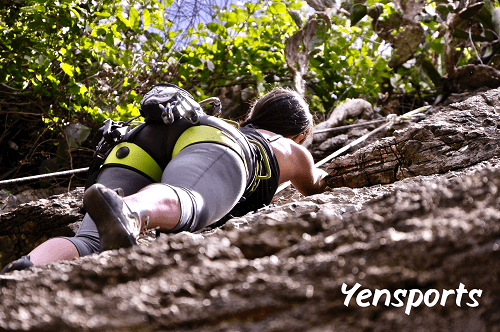Over-the-Counter (OTC) Sports Products: An All-Inclusive Guide
Within the last two or three years, there has been astronomical growth in the sports industry, especially for over-the-counter products. What prescriptionless drugs have saved the athlete and the fitness-conscious a lot of discomforts that come with vigorous exercising and sports, besides swift relief and performance-enhancing characteristics, injury prevention, as well? Over-the-counter sports products refer to anything from painkillers and supplements to topical skin creams and tools used during recovery. This report will discuss the various kinds of over-the-counter sports products, their uses, and benefits.

Types of OTC Sports Products:
Pain Relief and Anti-inflammatory Medications:
The most frequent reason athletes use OTC drugs is to relieve pain. Examples include ibuprofen, naproxen, and aspirin, which are nonsteroidal anti-inflammatory drugs used to reduce inflammation from strains, sprains, or general muscle aches. These drugs are also available in topical form. They can be taken as pills by athletes who require no prescription to manage small injuries.
Topical Creams and Gels:
Topical products include creams, gels, or ointments that can be applied to areas of sore muscles or arthritic joints. Most contain menthol, capsaicin, or arnica, which can help create a soothing, cooling, or warming sensation. Biofreeze and Tiger Balm are familiar in sports medicine for fast pain relief and mobility.
Sports Supplements:
Apart from these, sports supplements also include a myriad of over-the-counter performance-enhancing products that would increase endurance and help during recovery. These include proteins, branched-chain amino acids, creatine, electrolytes, and pre-workout formulas. The most popular use of all these among athletes is as aids in energy and the recovery of muscles; it gives more rapid gains as well as better performance when exercising or competing.
Equipment for the Prevention and Treatment of Injury:

There are also many over-the-counter injury prevention and rehabilitation products. Examples include braces, compression sleeves, kinesiology tape, and ice/heat packs. Braces and sleeves support and stabilize the joints to help decrease stress and tension from exercises or other activities. Kinesiology tape is what can be commonly observed in professional athletes, relieving the pain from muscles and joints, decreasing swelling, and improving blood flow for easier recovery from injuries.
Hydration Products:
Proper hydration is needed in propeforsports performance. OTC sports drinks and tablets in maintaining electroelectrolytesso useful, especially if an individual engages himself during very strenuous activity. These Gatorade products and Nuun help an athlete replace sodium, potassium, magnesium, and calcium, which are lost while sweating. Thus, a dehydrated individual keeps muscle cramps or being e away.
Benefits of OTC Sports Products:
One of the reasons why OTC sports products have been gaining popularity is their convenience and cost-effectiveness, whereby minor injuries or discomfort may be managed without a prescription from a doctor. They instantly offer solutions for common sports-related issues like muscle soreness, joint pain, fatigue, and dehydration, and they even allow for self-management. People may continue training or competing with minimal downtime due to self-management.
However, the use of these products needs to be in a responsible manner as excessive dependence on OTC pain relievers or supplements can cause side effects or even misuse.
Frequently Asked Questions (FAQs):
1. Are OTC pain relievers safe for athletes to use regularly?
Although OTC pain relievers like ibuprofen and aspirin are usually safe when used according to prescription, they should not be taken for a long time without medical advice. Overuse can cause gastrointestinal problems, kidney damage, or heart issues. Always take the recommended dosage.
2. Sports supplements can enhance performance?
By raising energy levels, endurance, and recovery but cannot be a substitute for proper training, nutrition, and rest. Supplements should only be taken after consulting a healthcare provider since they must be used if they can meet the individual’s needs.
3. Are topical creams effective for muscle soreness?
Topical creams can help controloresoreness. Many creams, especially those that contain menthol, arnica, or capsaicin, dilate blood vessels and improve blood flow while reducing the pain. Topical creams do not provide a permanent cure but instead, help regulate the discomfort following an exercise session.
4. Do OTC braces prevent injuries?
Sure, OTC braces and supports can stabilize joints, providing additional support during physical activity, and possibly reducing the risk of injury. Nevertheless, they are not a guarantee against injury and should be used with proper technique and conditioning.
5. What is the best way to stay hydrated during intense exercise?
The best source of hydration in intense exercise is water but one must drink enough amounts of water during intense periods of exercise. During extended periods or in warm conditions, one may also require electrolyte drinks or tablets to top up lost minerals such as sodium when engaged in intense exercise to avoid dehydration and muscle cramps.
Conclusion:

OTC sports products help athletes and fitness enthusiasts in pain management, performance enhancement, and recovery. Proper products with balanced training allow athletes to stay in their game and avoid excessive downtime. Still, they must be used responsibly and, when needed, with a healthcare professional for safety and effectiveness.

